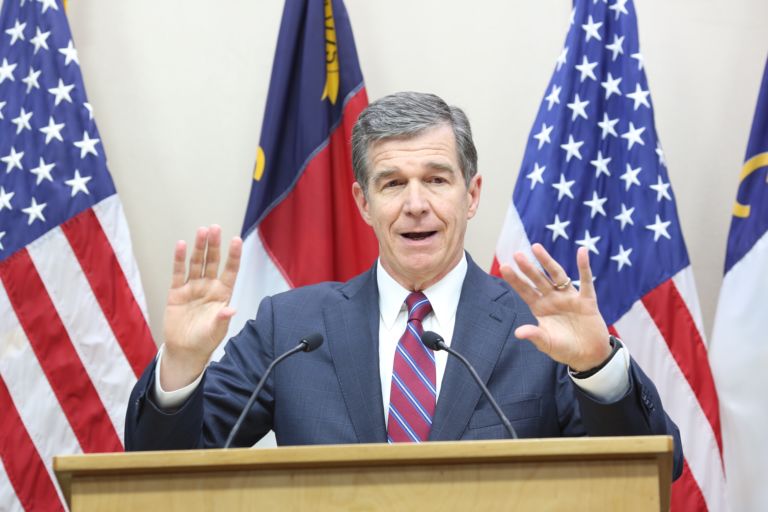- Hybrid schools employ multiple settings, instructors, and mediums of instruction with varying degrees of standardization and regimentation
- There are disagreements within the hybrid school community about the costs and benefits of regulations and accreditation
- North Carolina law does not create a specific regulatory structure to govern hybrid schools but instead relies on existing rules and statutes for nonpublic schools, child care facilities, and public schools
Long before the pandemic forced millions of parents to seek out new educational arrangements for their children, concerned families, communities, and entrepreneurs developed inventive alternatives to the conventional model of schooling. These “hybrid” alternatives typically employed multiple settings, instructors, and mediums of instruction with varying degrees of standardization and regimentation. For example, Heritage Leadership Academy operates a popular hybrid model in the Triangle that requires students to attend a brick-and-mortar school for two to three days each week, depending on grade level. Parents tutor or assist their children for the remaining days of the school week at home.
Last month, I was honored to speak at the 2022 National Hybrid Schools Conference hosted by the National Hybrid Schools Project at Kennesaw State University. My panel on governance, policy, and accreditation issues included Kerry McDonald from the Foundation for Economic Education and Tammy McIlvoy from the National Association of University-Model Schools. EdChoice Director of National Research Dr. Mike McShane moderated the session.
The conference exposed tensions in the hybrid school movement. On the one hand, most states have very vague or superficial rules governing hybrid schools. As such, there is minimal interference from bureaucrats or regulators, which is appealing to parents who seek maximum flexibility to create learning opportunities for their children. Excessive legal and regulatory structures create arbitrary limitations that often run contrary to the libertarian spirit of hybrid schooling.
On the other hand, some families seek authentification of their efforts through accreditation boards or state agency registration. Heritage Leadership Academy, for example, maintains the popular National Association of University Model Schools accreditation. Those who support external validation of their programs argue that it makes it easier for hybrid schoolers to navigate intercollegiate athletics rules, college admissions requirements, and education and childcare laws that may apply to hybrid schools. For these families, the benefits of officialdom outweigh the inconveniences associated with compliance. Unfortunately, most accrediting boards have not formulated a satisfactory framework for evaluating hybrid schools.
North Carolina law does not define hybrid schooling or create a specific regulatory structure to govern it. Instead, hybrid schooling generally falls under rules and statutes for nonpublic schools, child care facilities, and public schools. The pertinent rules depend on the type of setting, the presence of the parents, the nature of the activities, and the enrollment status and number of participating children.
The table below details popular hybrid school arrangements and the legal and regulatory framework that may apply. “Base school” refers to the school designated by the parent or guardian that complies with North Carolina’s compulsory attendance law.
Table 1. Popular Hybrid School Arrangements
| Base school | Supplemental school or program | Regulatory entities | Regulations |
|---|---|---|---|
| Home school | Private school | N.C. Division of Non-Public Education | Regardless of the types of arrangements between the home school parents and private schools, the parent or guardian must "determine the scope and sequence of academic instruction, provide academic instruction, and determine additional sources of academic instruction," as specified in North Carolina’s home school statute. (Source.) |
| Private school | Home school | N.C. Division of Non-Public Education | The private school assumes the “full legal responsibility for the complete oversight of the student’s education.” If confronted by law enforcement for an alleged violation of the compulsory attendance law, parents must indicate that the child is in a “teaching-at-home program” for a portion of each academic day. (Source.) |
| Private school or home school | Private tutor or supplemental enrichment program | N.C. Division of Non-Public Education (base); N.C. Department of Health and Human Services (supplemental) | The private tutor or supplemental enrichment program may be subject to child care regulations if it meets the statutory definition of “child care”; i.e., a “program or arrangement where three or more children less than 13 years old, who do not reside where the care is provided, receive care on a regular basis of at least once per week for more than four hours but less than 24 hours per day from persons other than their guardians or full-time custodians, or from persons not related to them by birth, marriage, or adoption.” Exceptions exist for certain recreational programs, specialized activities, and cooperative arrangements. (Source.) |
| Private school or home school | Child care center | N.C. Division of Non-Public Education (base); N.C. Department of Health and Human Services (supplemental) | The center is subject to child care regulations if it is a “child care arrangement located in a facility where there are 9 or more school-age children receiving child care at any one time.” (Source.) |
| Private school or home school | Family child care home | N.C. Division of Non-Public Education (base); N.C. Department of Health and Human Services (supplemental) | The home may be subject to child care regulations if it is “located in a residence where, at any one time, more than two children, but less than nine children, receive child care.” (Source.) |
| Home school | District school | N/A | No statute allows for full dual enrollment in a public and nonpublic school, but opinions about the legality of such arrangements vary. (Source.) |
| Private school or home school | N.C. Virtual Public School courses | N.C. Division of Non-Public Education (base); N.C. Department of Public Instruction (supplemental) | N.C. Virtual Public School rules and policies apply. (Source.) |
Source links:
Microschools and “pandemic pods” are other nonconventional hybrid alternatives that blend elements of home, private, and supplemental instruction, but they do not fit neatly into any one of those categories as North Carolina law defines them. While anecdotal information suggests that microschools and pods surged during the pandemic, the lack of reliable data makes it difficult to know for sure.
I contend that North Carolina policymakers should refrain from imposing legal and regulatory barriers on hybrid schooling. These alternatives to conventional education are not problems that require a solution. They are innovations to be cultivated by families and entrepreneurs who remain unsatisfied with the status quo.


